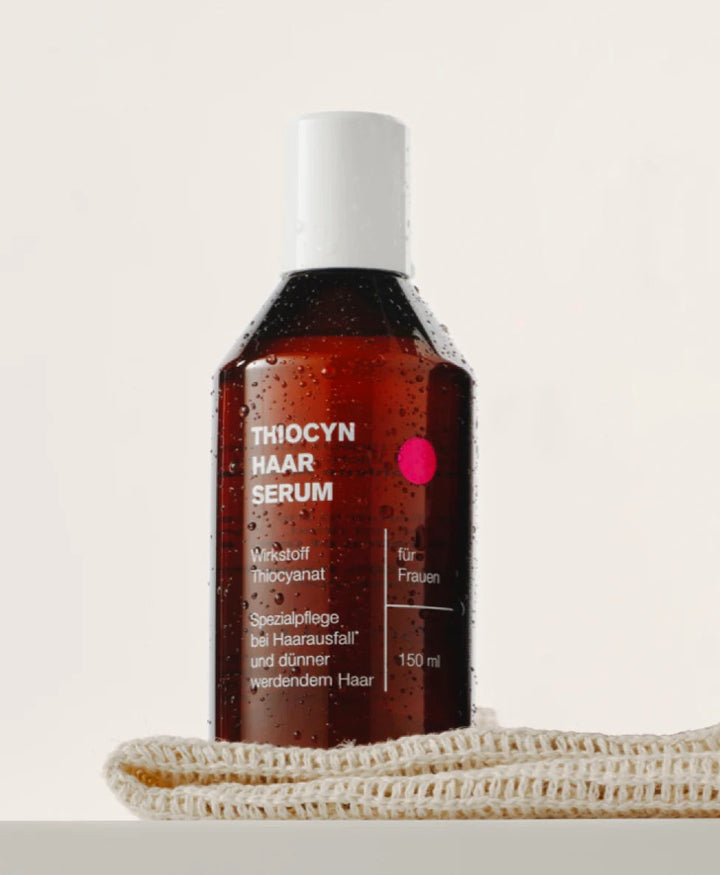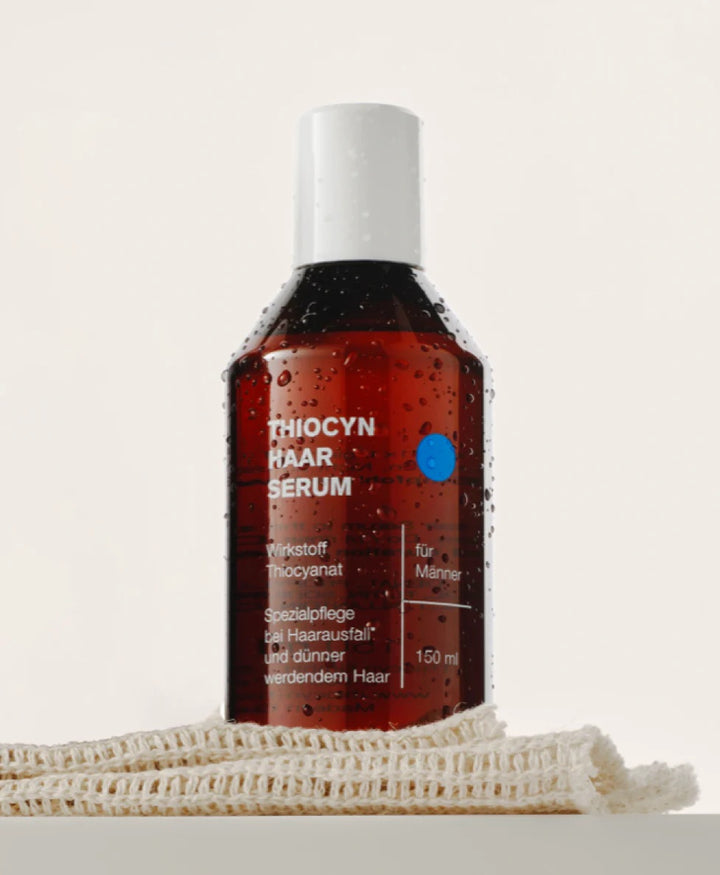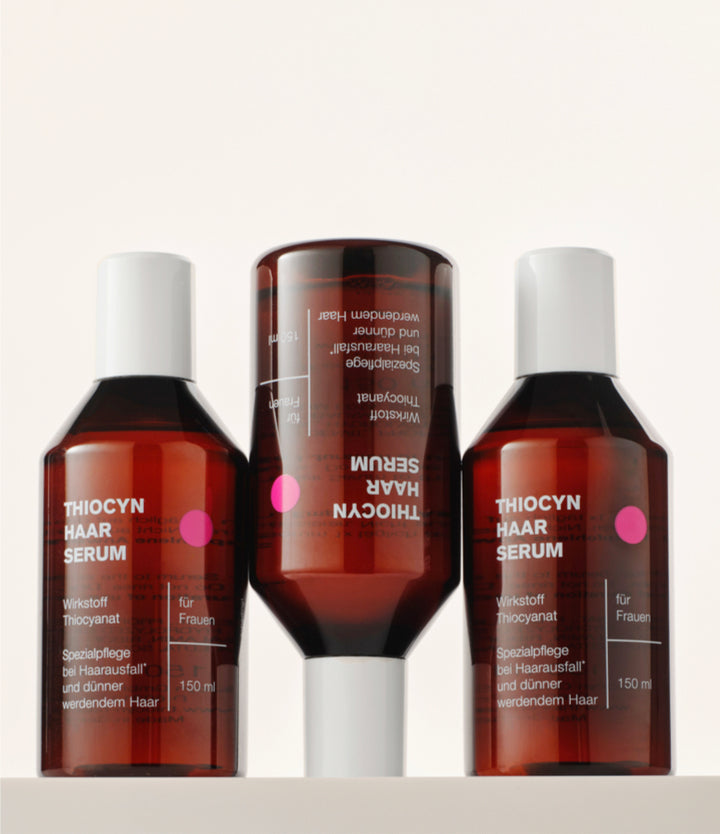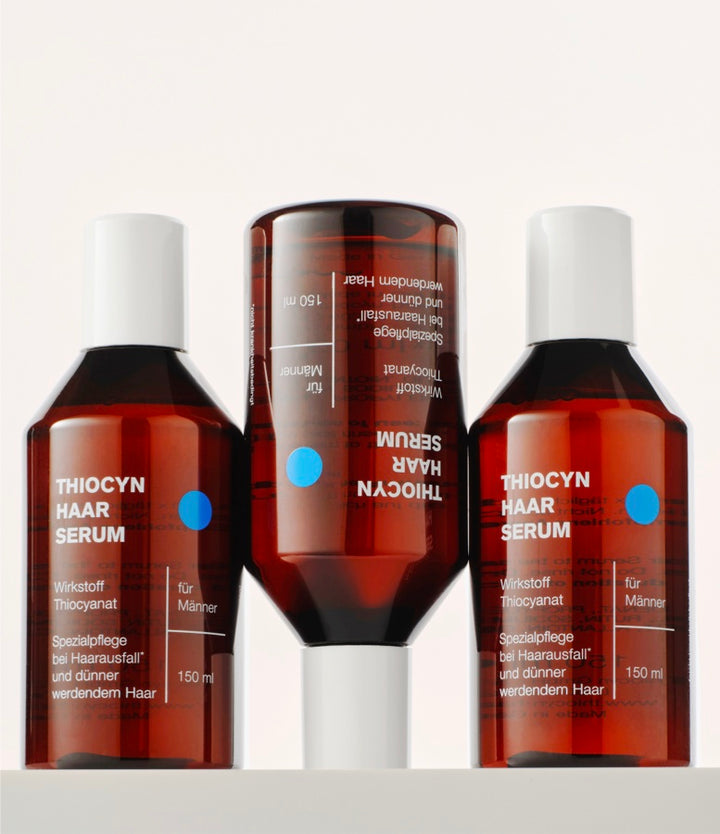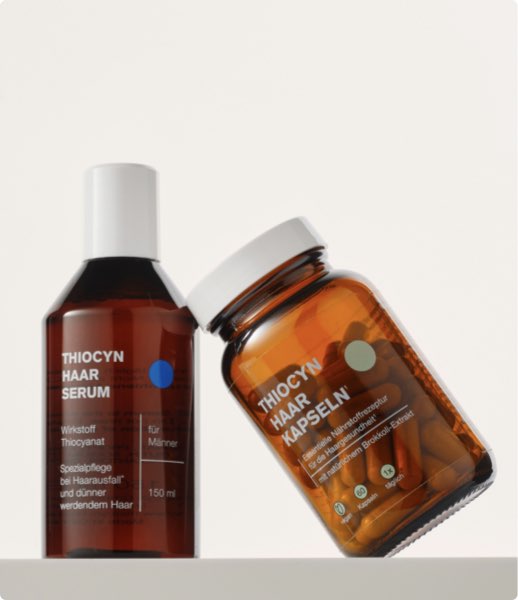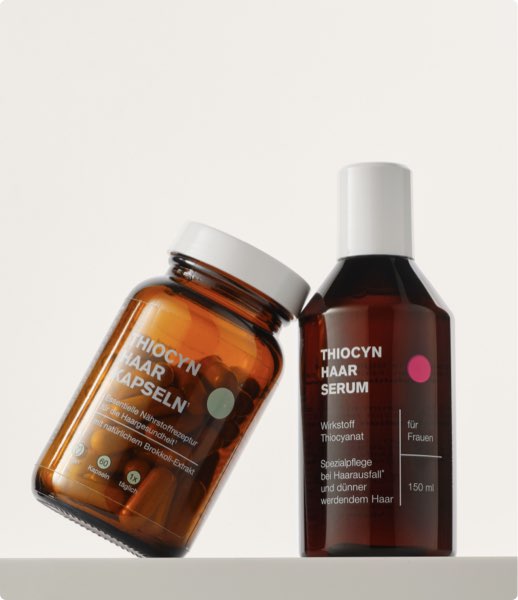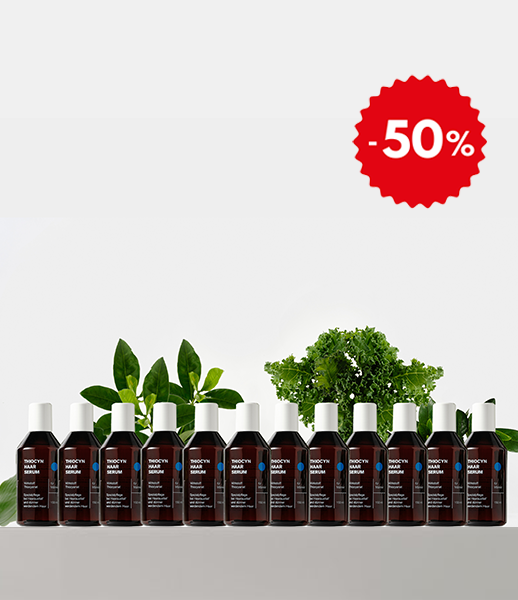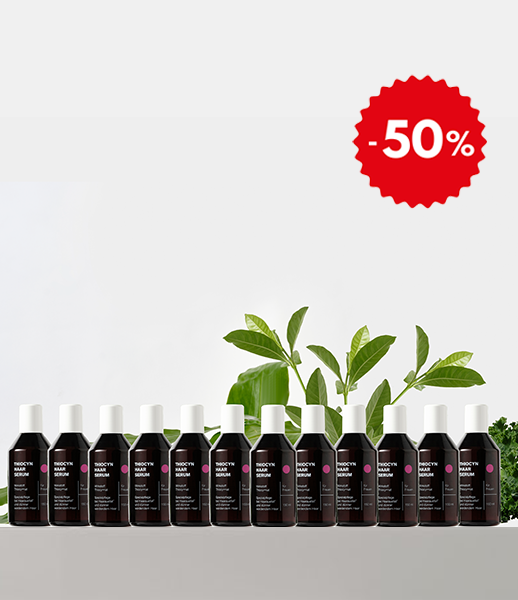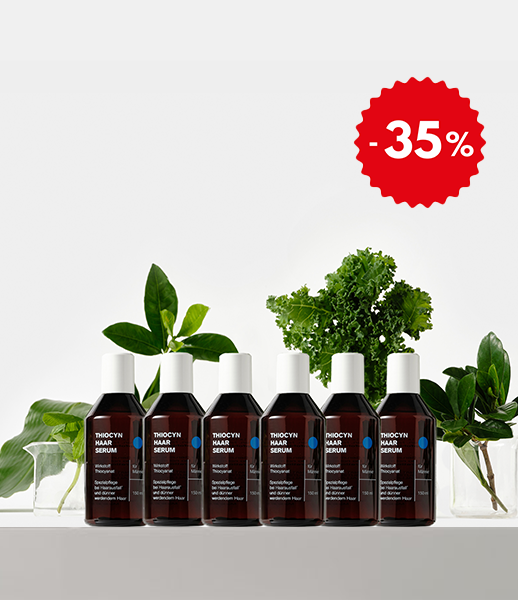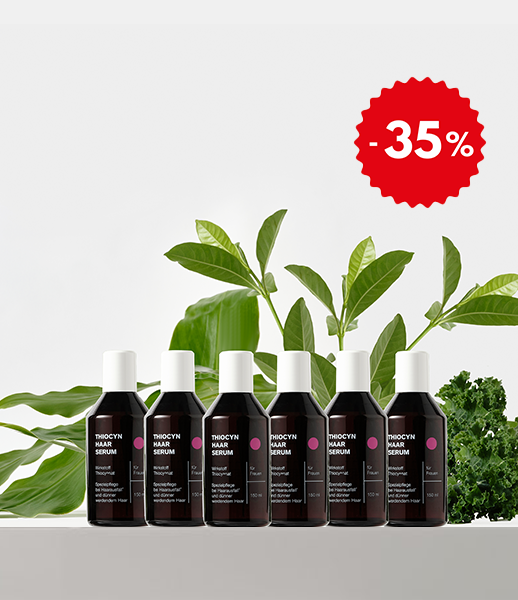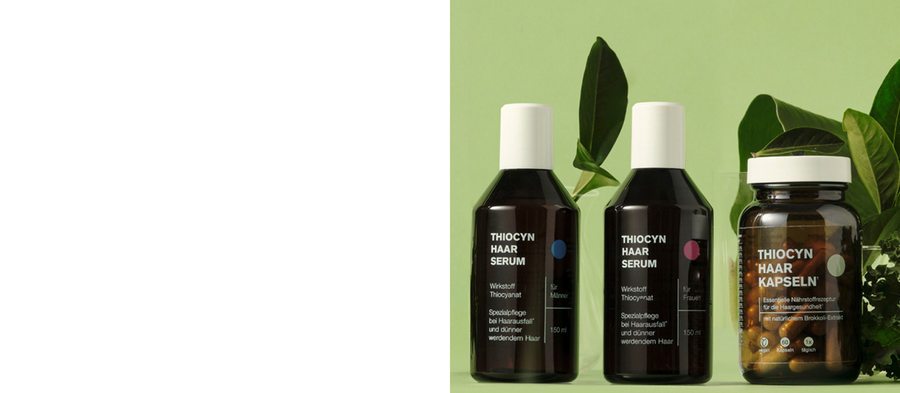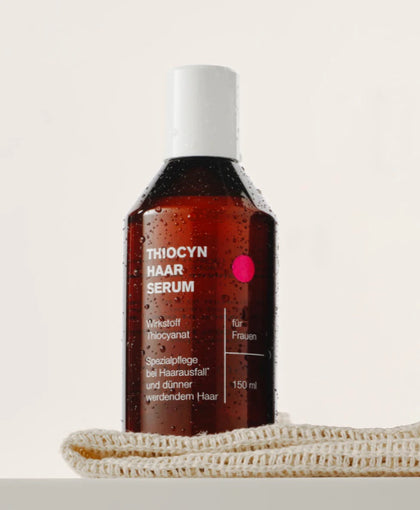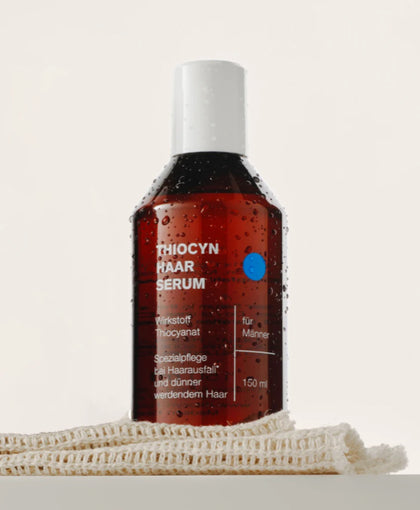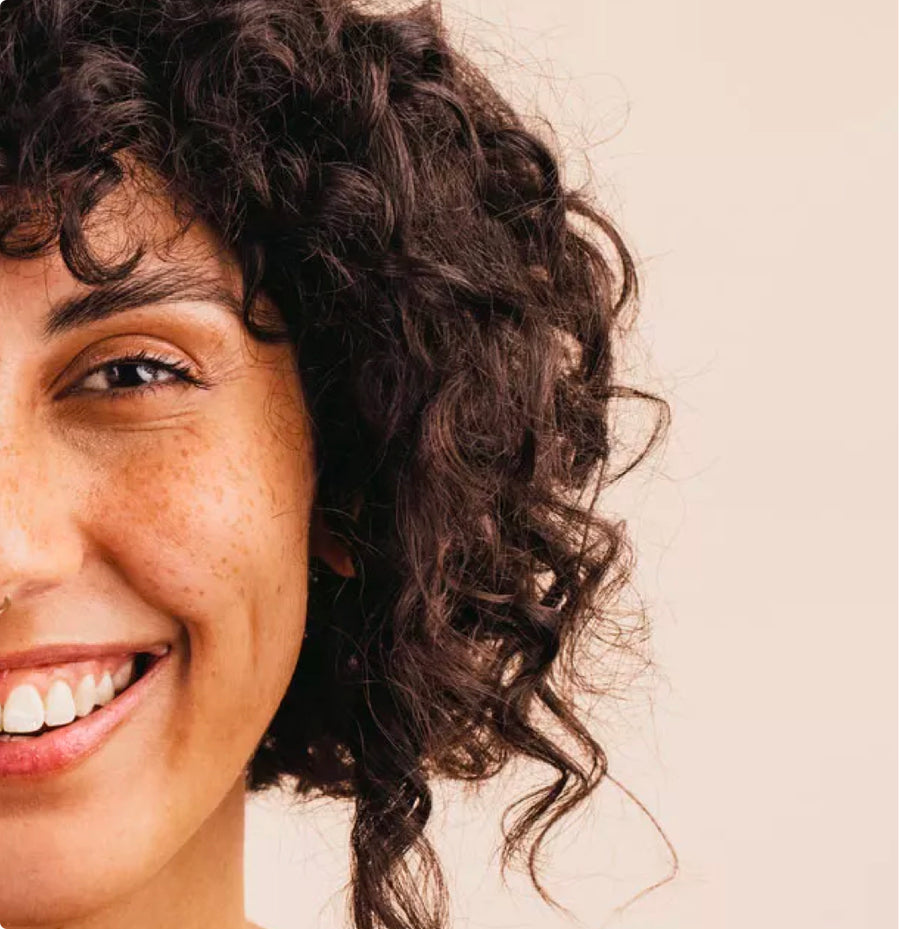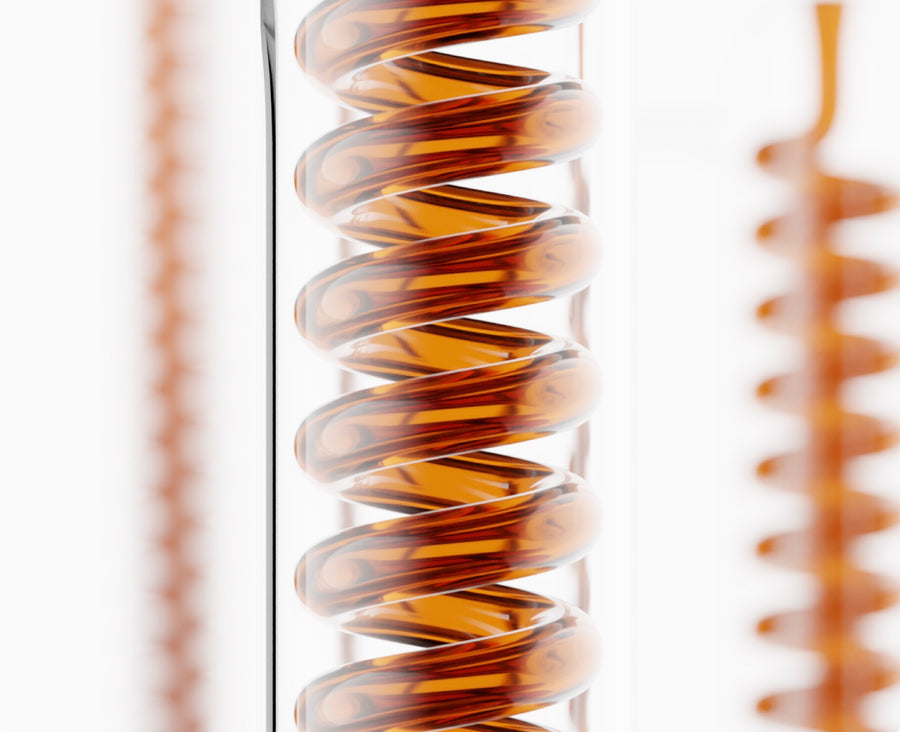
Small molecule,
big impact
Thiocyanate is not a modern invention, but a naturally occurring molecule and almost as old as life itself. The long existence of thiocyanate in our environment explains its essential importance in the cellular metabolism of all living organisms.
what is
Thiocyanate?
The body's own molecule thiocyanate is involved in a variety of processes in the body and promotes all types of healthy cellular activity. Supplemental intake can stimulate or normalize misguided processes.
"Thiocyanate activates or regulates the body's own processes," says thiocyanate researcher Prof. Dr. Axel Kramer. "Where these do not function as desired, additional thiocyanate can be helpful, z.B. in the case of hair loss* or skin irritations such as neurodermatitis or itching."
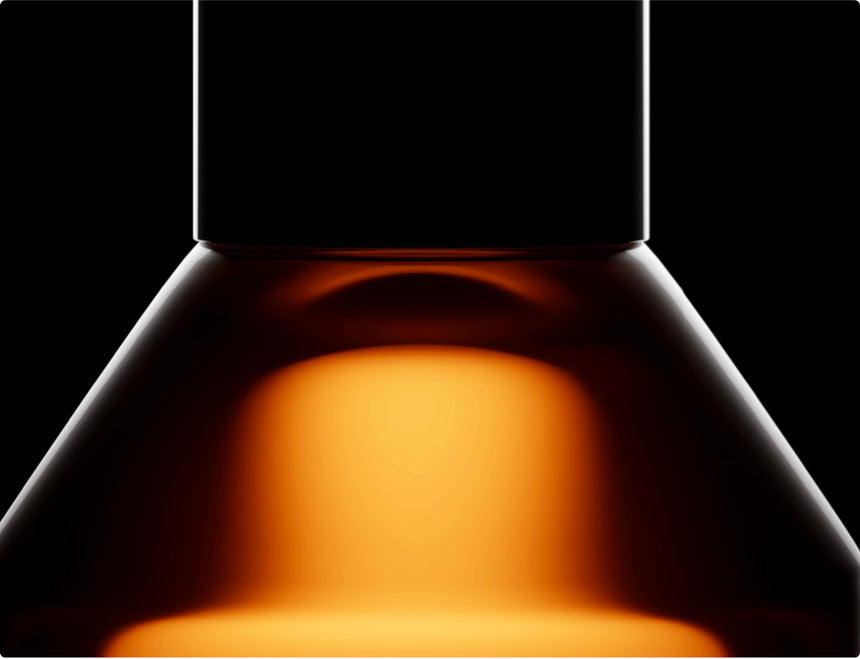
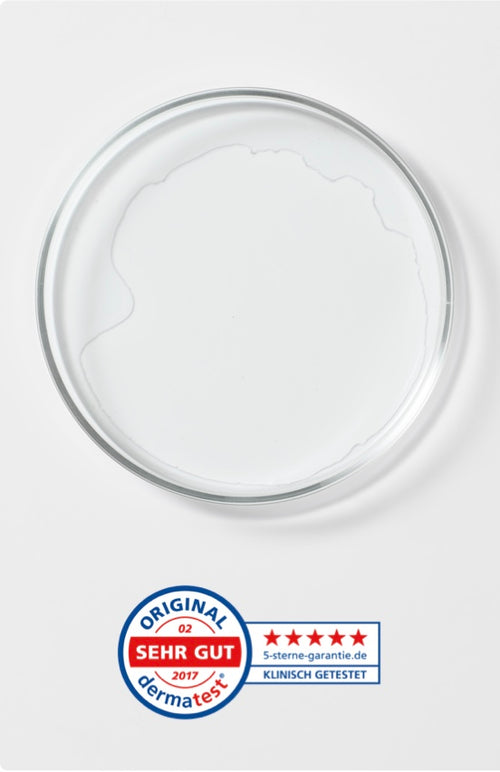
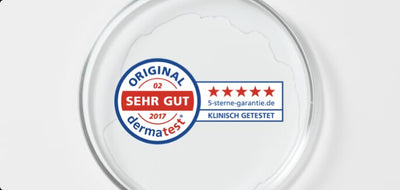
Strengthens the hair root
86%** Less hair loss (test method: counting and combing)
Protects against external influences
35%** higher hair density (hair/cm2) (test method: Trichoscan HD analysis)
Normalize the hair cycle
90%** of the subjects had a consistently good or healthier scalp.
Versatile effect
The body's own active ingredient is essential for cellular metabolism and thus also important for hair growth. Thiocyn Hair Serum, with its patented thiocyanate active complex, relieves stress on the hair roots, nourishes them, and non-specifically activates cellular metabolism. The hair roots are strengthened and thus protected against a variety of growth-disrupting influences.
Thiocyanate—more specifically sodium thiocyanate—plays a role in the body in many ways: It stimulates wound healing, immune response, and even hair growth. This is especially true in cases of thiocyanate deficiency or increased need. Thiocyanate also has anti-inflammatory effects and protects against infectious and allergic stress. The hypothiocyanates formed through oxidation are highly effective antimicrobials and very important for microbial defense.
The EVA effect: This is how the Thiocyanate complex works
- Relieved: From too frequent washing hair to damaging environmental influences - hair growth is often disturbed from the outside. Thiocyanate relieves the hair root by stabilizing the cell membranes.
- Supplied: The THIOCYN effects contain everything the hair root needs for healthy, natural growth.
- Activated: A hair cycle that is stalled into the stall or from the equal weight can be normalized again and thus the hair growth is activated.
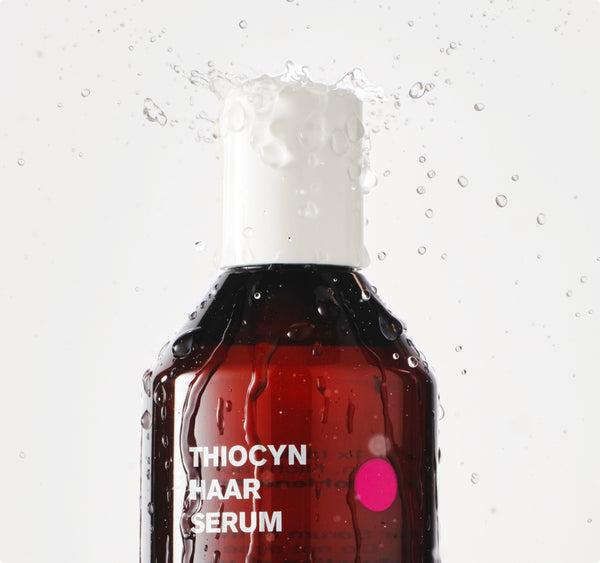
What effect does thiocyanate have?
Prof. Kramer: "The molecule promotes cell activity, no matter which cell it is. Applied locally, it soothes irritated skin (z.B. also in neurodermatitis) and promotes wound healing, when used systemically it has z.B. immunostimulating.
It acts as a stabilizer of the cell membrane and thus normalizes existing imbalances in the cellular balance. Positive effects have now been confirmed for a wide range of applications – including hair loss*.
Are side effects known for Thiocyanate?
Prof. Kramer: "There are no relevant side effects, and I'm not aware of any interactions. Why is that? Thiocyanate has a physiological mechanism of action. It's a natural molecule that naturally stimulates and promotes hair growth."


The active ingredient thiocyanate explains by Prof. Dr. Axel Kramer
Prof. Dr. Axel Kramer: "I did not discover the active ingredient, it was first detected in 1826 in the saliva. 40 years ago I started to deal with the molecule - no matter what scientific international recognition has found it or not. The molecule is so easy that at first no one can believe what effect it has."
"First of all, Thiocyanate was already present during the evolution of life. Just like the water, just like the oxygen to breathe, this molecule was there from the start. This was the prerequisite for it today that it has an essential meaning in cell metabolism from all living things. The molecule itself promotes cell activity, regardless of the cell. promoted against microorganisms and achieved a protective effect in the event of toxic stress. "
"It is not so easy to explain the effect of thiocyanate in the body, because there is no uniform mode of action of thiocyanate. Rather, the effect is to be understood as the sum of various partial effects. As already mentioned, we have a stimulating effect on the cell itself. This has, as a consequence, an anti-inflammatory and thus cell-stabilizing effect. In addition, there is the detoxifying effect on radicals. The normal microflora - as we know it u.a. found everywhere on the skin mucous membranes and in the intestines – is also strengthened. For an intact microflora, it is essential that it always has an advantage when it has sufficient thiocyanate."
"In contrast to a drug, which due to its specific mechanism of action always works or is intended to work in only one direction, thiocyanate serves to normalize over- and under-functions. It can therefore activate or dampen, depending on the direction of the imbalance. Atopic dermatitis z.B. is a complex process composed of many elements. Thiocyanate acts on all of these elements. A positive effect on hair loss was also discovered incidentally.
It turned out that Thiocyanate can stop receding councils and promotes the young hair. With an existing classic bald head, Thiocyanate can probably not stimulate new hair growth. The best way to prevent Thiocyanate is used against hair loss. I've been doing this with the best success for decades. "
Hair loss is usually triggered by a hypersensitivity of the hair roots compared to dihydrotestosterone (damaging androgens of the body). Other factors such as stress, malnutrition, hormonal conversion phases and in particular insufficient subsequent delivery of thiocyanate due to the loss of hair washing can weaken the hair roots. The body's own molecule thiocyanate activates and strengthens the hair root. So it is less susceptible to these disturbing influences. In addition, the hair regeneration inhibiting radicals is detoxified. ”
There is no indication that Thiocyanate should not work in all forms of the hair loss. This is also independent of gender: Thiocyanate normalizes the metabolism unspecific, so it works equally in men and women. It is different with the preparations that use hormones. ”
- If you choose a selection, the page will be completely updated.
- Is opened in a new window.
